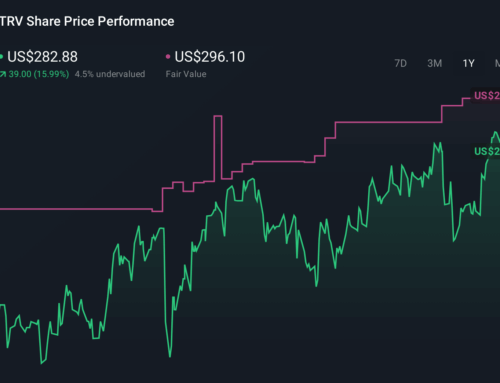Economic expert says ‘large number of foreign investors’ are ‘worried’ about investing in
May 21, 2025
U.S. stocks had been outperforming the rest of the world for years — until a slew of tariffs and trade policies spooked investors and caused global markets to plunge in March.
Now, some foreign investors are rethinking their exposure to U.S. markets. That’s according to economic expert Rebecca Patterson, who previously served as Bridgewater’s chief investment strategist, on an episode of CNBC’s Fast Money.
After speaking with participants at the World Bank Group and International Monetary Fund meetings in Washington, D.C. last month, she found that foreign investors are losing faith in the U.S. and fear the weaponization of capital markets.
“There are a large number of foreign investors who are worried not only about tariffs, but just about America’s reliability as a partner,” Patterson told CNBC.
-
Thanks to Jeff Bezos, you can now become a landlord for as little as $100 — and no, you don’t have to deal with tenants or fix freezers. Here’s how
-
I’m 49 years old and have nothing saved for retirement — what should I do? Don’t panic. Here are 5 of the easiest ways you can catch up (and fast)
-
Nervous about the stock market in 2025? Find out how you can access this $1B private real estate fund (with as little as $10)
As of last June, foreigners held $31 trillion of U.S. assets, according to the most recent U.S. Treasury data.
Now, foreign investors are looking at the “huge U.S. allocation that has built up over the last several years,” Patterson told CNBC. And they’re thinking maybe they should “have a little bit less, just trim off the tops,” like having a “risk premium on U.S. assets because we have so much uncertainty.”
But the impacts of trimming off the tops could be profound.
“Pretend you’re the chief investment officer of a major overseas pension fund or sovereign wealth fund. I’m going to take 2% off my U.S. stocks, 2% off my U.S. bonds, a 4% shift,” she said. “That’s $1.2 trillion that is going to be leaving the U.S. now.”
However, she said this won’t happen overnight, since investment companies “take months” to make these types of decisions. What will happen instead is “a slow bleed of support out of the U.S. markets,” which she says will go back to home markets or to new opportunities.
But it seems this slow bleed is already happening, with global investors dumping U.S. stocks at a record pace, according to BofA Global Research.
“Respondents to BofA’s monthly survey of fund managers were a net 36% underweight U.S. equities, the most in nearly two years, a number that has plunged by 53 percentage points since February, the biggest such fall on their records,” reported Reuters.
The survey also found that 73% of respondents believe U.S. exceptionalism has peaked and 61% expect the U.S. dollar to depreciate over the next 12 months.
Read more: You’re probably already overpaying for this 1 ‘must-have’ expense — and thanks to Trump’s tariffs, your monthly bill could soar even higher. Here’s how 2 minutes can protect your wallet right now
If foreign investors lose confidence in the U.S., it could lead to a capital flight as they withdraw their investments, which could in turn lead to a depreciation in the value of the U.S. dollar. A lower dollar could increase the cost of imports — already under enormous pressure from Trump’s tariffs — which could fuel inflation.
Unease among foreign investors could also discourage new foreign investment in the country, impacting job growth. And hesitation to lend to the U.S. could also lead to higher interest rates and borrowing costs.
If you’re an American concerned about market volatility, it could be a good time to take stock of your financial situation to help weather any potential storms.
For example, you could lock in fixed-rate debts, which can protect you from higher rates in the future. It can also provide predictability in your budget, especially if you’re worried about your ability to handle variable payments.
It’s also a good time to build an emergency fund (if you don’t already have one) and aggressively pay down your high-interest debt, such as loans and credit cards. You may also want to consider fixed-income investments such as short-term bonds or Treasury Inflation-Protected Securities (TIPS).
Short-term bonds include mutual funds and exchange-traded funds (ETFs) with maturities of less than five years. They’re considered low risk and highly liquid, making them ideal for saving for short-term goals.
TIPS, on the other hand, are designed to protect against inflation by reflecting changes in the Consumer Price Index (CPI) and come with the U.S. government’s assurance that investors will never receive less than the original value of the bond at maturity.
While it’s generally advisable to avoid making rash, fear-based decisions with your investments, you may want to sit down with your financial advisor to make sure your portfolio is well diversified — and that might mean adopting a more global portfolio.
-
Want an extra $1,300,000 when you retire? Dave Ramsey says this 7-step plan ‘works every single time’ to kill debt, get rich in America — and that ‘anyone’ can do it
-
Rich, young Americans are ditching the stormy stock market — here are the alternative assets they’re banking on instead
-
Robert Kiyosaki warns of a ‘Greater Depression’ coming to the US — with millions of Americans going poor. But he says these 2 ‘easy-money’ assets will bring in ‘great wealth’. How to get in now
-
Here are 5 ‘must have’ items that Americans (almost) always overpay for — and very quickly regret. How many are hurting you?
This article provides information only and should not be construed as advice. It is provided without warranty of any kind.
Terms and Privacy Policy
Search
RECENT PRESS RELEASES
Related Post



